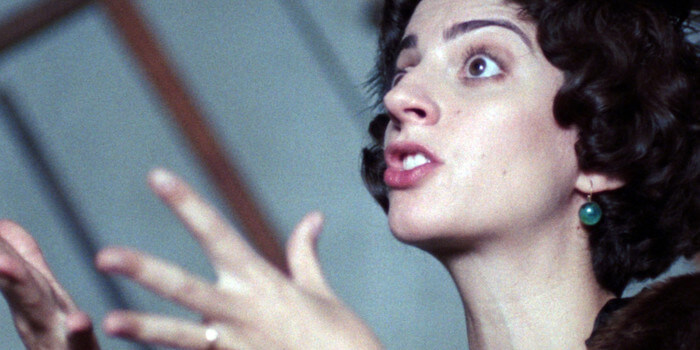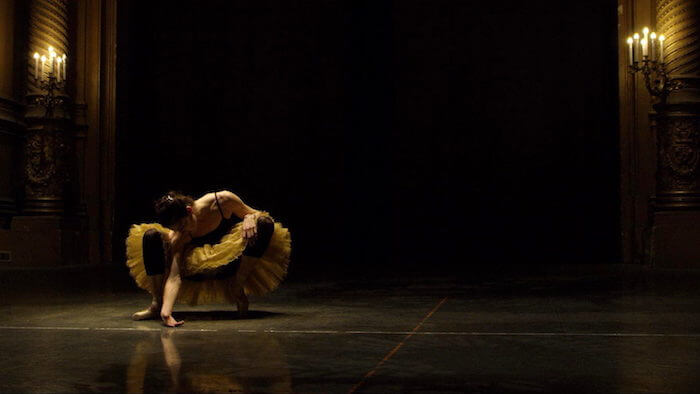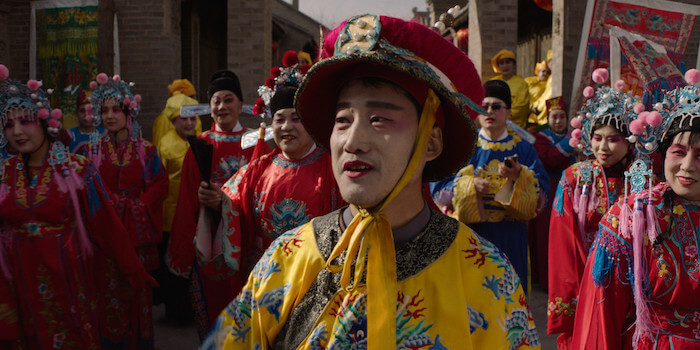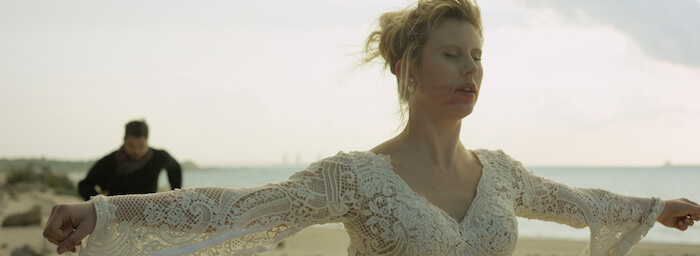#NYFF 2016: Shorts By International Autuers


The “International Auteurs” program, part of the short film lineup at the 54th New York Film Festival, screens October 1 and 2. Follow our coverage of NYFF 2016 here.
Never the ones to steal headlines and instigate marketing pushes, short film programs are nevertheless among the highlights of any film festival in some ways, giving glimpses of works unlikely to receive theatrical distribution or even digital releases even with big names attached. The NYFF’s “International Auteurs” program features some of the brightest names in the business, and they don’t disappoint.
Gabriel Abrantes’s A Brief History of Princess X is the shortest and slightest of the bunch. It focuses on the eponymous sculpture that, by all appearances, is a penis, but is in fact Constantin Brâncuși’s rendering of his wife, Marie Bonaparte. Through an irony-laden voiceover from Abrantes himself, we learn that Brâncuși was gay and completed the sculpture long after Bonaparte, who would go on to write On Female Sexuality, had left him. Abrantes, who narrates as well as recites dialogue over performers’ lip-sync, embellishes stories only to immediately profess to their falsity and lingers on the self-evident bodily jokes as his brief history takes brief diversions. In a film about how what appears silly and trivial is often in fact misunderstood artistry, the approach is fitting.


Bertrand Bonello continues his excavation of cinema’s narrative heterogeneity in Sarah Winchester, Phantom Opera, a stand-in for an electronic ballet/opera that hasn’t been made. Quick synopses and act breaks resembling program notes walk us through Sarah Winchester’s life, namely the premature death of her baby and the never-ending “Winchester House” project conceived as subliminal repentance for the lives taken by her husband’s rifles during the civil war. Abstract recreations and dancehall rehearsals are shot with dark, amber lighting, with quasi-horror cinematic touches and increasingly operatic musical bridges as Winchester succumbs to dementia. Few films at the festival will be as stunning and as beautiful.


After tapping Tsai Ming-Liang for No No Sleep last year, this time around the Hong Kong International Film Festival commissioned Jia Zhangke for a segment of Beautiful, the festival’s signature omnibus. Jia has drifted further and further from the neorealist-indebted style that won him much acclaim in the west; critics have not always been able to keep up with his expanding artistry, but The Hedonists, Jia’s portrait of workers who are laid off after a coal mine closes, should appease both groups. Unexpectedly comedic and a complement to Mountains May Depart (with which it shares music), the film is another examination of capitalist influence and the loss of culture memory. Shooting almost entirely from a drone, Jia dabbles in Scorsese-esque tracking shots in interiors and in exteriors in the long, observational takes similar to those in his early films, except that they gradually take to the air. While such a technique could easily prove indulgent, the unexpected turns and flights, as well as the accompanying music cues, are as exhilarating as anything Jia has ever done, and provide ample reason to believe he will keep pushing himself.


Equal parts pleasant, unnerving, and provocative, Nadav Lapid’s From the Diary of a Wedding Photographer opens with crowded images of moving feet and flickering colored lights against blasts of dance music. Occasionally we can make out a catering table or the camera will linger long enough to capture legs or dresses in some detail. As the eponymous videographer known only as Y describes the night, we learn that this footage was the result of a misunderstanding: the videographer thought the red light meant the camera was not filming and vice versa. “I’ve filmed about 700 weddings but that first one, the failed one, the fractured one, floor ceiling floor was probably the most genuine portrayal of married life I’ve ever done.”
In proving that point, Lapid captures moments of exhilaration as powerful as those in The Kindergarten Teacher, but against the opener the kitschiness of romantic love as it appears on screen comes to the forefront. This understanding of the falsity of the rehearsed image gradually paves the way first for a deconstruction of marriage as a whole, and then about the power the camera-holder wields over the bride. Not the newest or most original ideas, to be sure, but Lapid has a penchant for allegory in that he kindly requests the viewer do the work, reminding us that such consideration for the audience need not be at the expense of artistry, and that artistry need not compromise enjoyability.
You might also like 




















